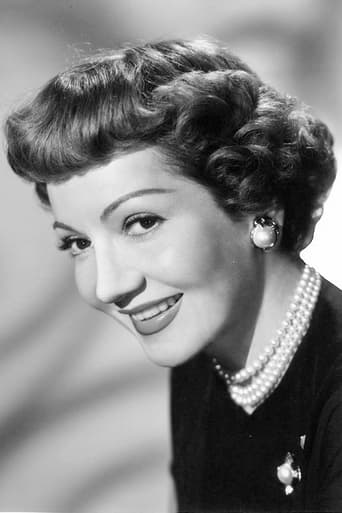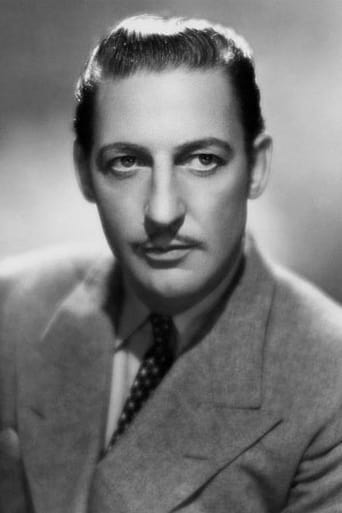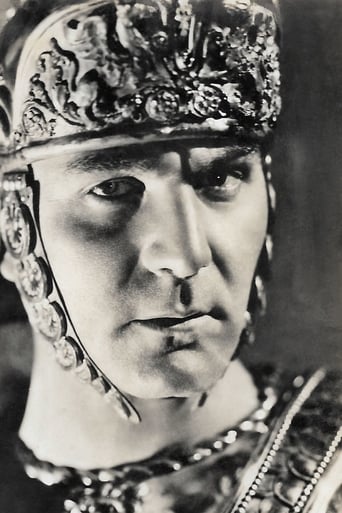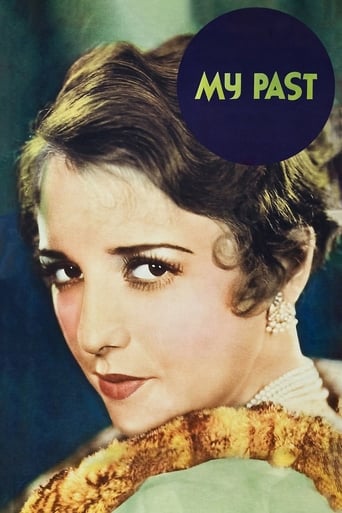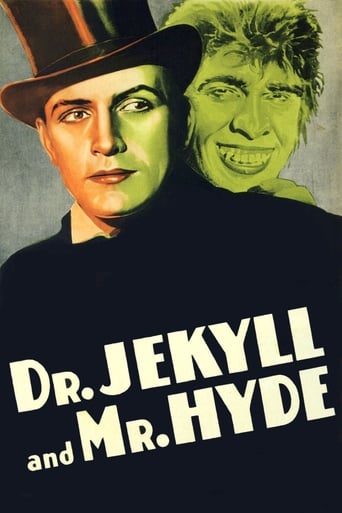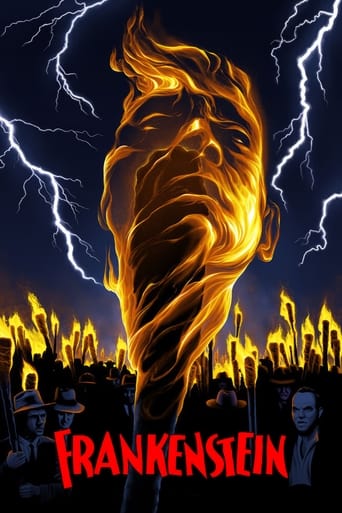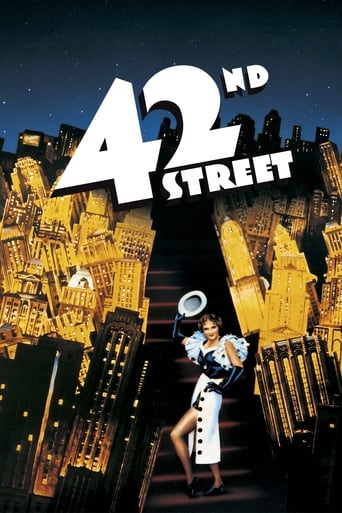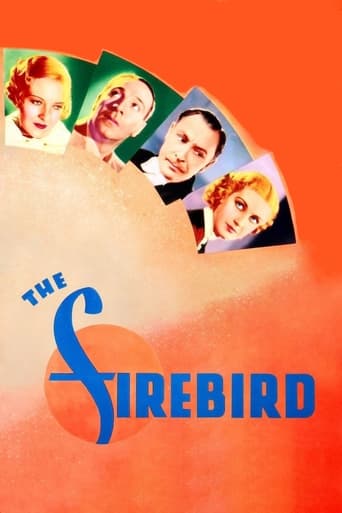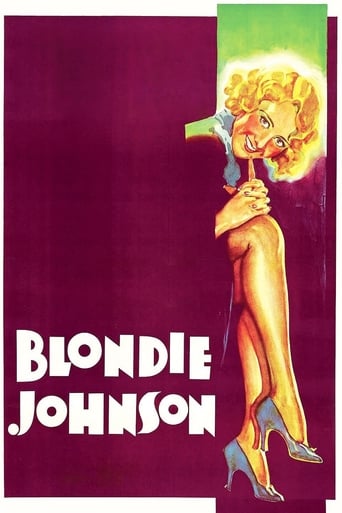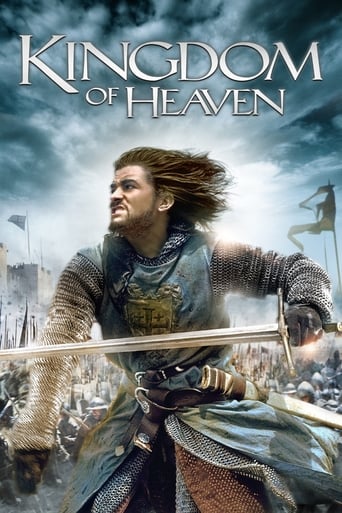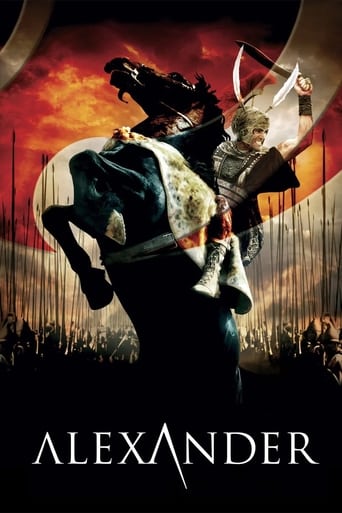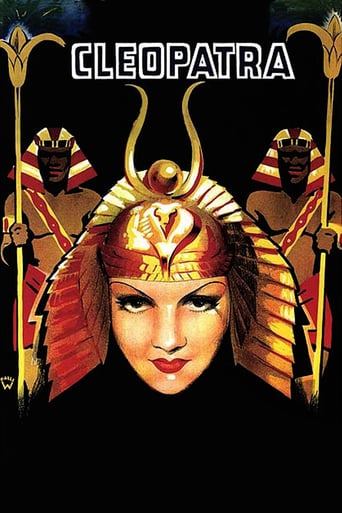

Cleopatra (1934)
The queen of Egypt barges the Nile and flirts with Mark Antony and Julius Caesar.
Watch Trailer
Cast
Similar titles
Reviews
A Major Disappointment
Great example of an old-fashioned, pure-at-heart escapist event movie that doesn't pretend to be anything that it's not and has boat loads of fun being its own ludicrous self.
The acting in this movie is really good.
The story, direction, characters, and writing/dialogue is akin to taking a tranquilizer shot to the neck, but everything else was so well done.
The cinema told many times Cleopatra's story,all them tried to be magnificent but just a one got it,this version has a great visual treatment,lavish sets,a large numbers of sexy choreograph,Cleapatra's costumes are fantastically design,but this movie suffer when to compare with 1963 version maybe black and white can explain...another thing Colbert vs Taylor have a great distance,the facts isn't accurate,a lack of hieroglyphics in the sets,anyway the movie is good but wasn't convincing in many ways....maybe too short to tell such complex story and events,sounds that it made be rushed,...however a good epic and dated of course.
Time is not always kind to movies, and Cecil B DeMille's 1934 version of Cleopatra is certainly a case in point. Although interesting for its risqué imagery and impressive set pieces, the film holds up less well in terms of performance and plot. It's easy enough to get hold of a really crisp print of the film on DVD, but this can't disguise the fact that it offers little to entice modern viewers beyond an element of curiosity value.Julius Caesar (Warren William) arrives in Egypt intent on adding it to his long list of conquered kingdoms. He is quickly beguiled by the Egyptian queen Cleopatra (Claudette Colbert), who promises him the riches of her great nation, plus India too, if he agrees to spare Egypt from the wrath of Rome. Later, Cleopatra foils an assassination attempt on herself and Caesar, further gaining the admiration of the Roman leader in doing so. Back in Rome, the senators are concerned that Caesar plans to abolish their Republic and install himself and Cleopatra as emperor and empress. Unhappy at this idea, they assassinate him on the Senate steps, leaving two of his most trusted subordinates, Octavian (Ian Keith) and Marc Anthony (Henry Wilcoxon), to take joint control of the Roman Republic. Marc Anthony vows to capture Cleopatra and bring her back to Rome in chains, after which he intends to lead a total invasion of Egypt. However, once he meets the alluring and beautiful Egyptian queen, he quickly falls in love with her. This in turn invites the full fury of Rome upon him, and gives Octavian all the excuse he needs to curse him and declare war against him. Abandoned by his old allies, and doomed to destruction for the sake of his love for one woman, Marc Anthony has no choice but to face his tragic fate alongside Cleopatra.DeMille's film has moments of interest for movie buffs and film historians, but the wooden performances and several tediously unspooled scenes restrict its wider appeal. Colbert utterly owns the movie as the title character, floating elegantly across the sumptuous art deco sets in an array of revealing outfits. Alas, she is not helped much by the supporting players, many of whom chew the scenery most unconvincingly. Wilcoxon as Marc Anthony is especially guilty of this, giving a performance that's slightly more wooden than Cleopatra's barge. The dialogue is generally pretty terrible, a mismatched muddle of jarringly modern talk delivered in English and American accents. It hardly fits the 'feel' the film seems to be going for, and by the end becomes something of an annoyance. That's not to say there aren't occasional highlights along the way. The film's most famous sequence, which involves Cleopatra's seduction of Marc Anthony aboard her barge, lives up to its reputation, while the sequence detailing the assassination of Caesar is handled effectively in a nicely underplayed way. All in all, the 1934 Cleopatra is unlikely to be picking up a whole generation of new admirers any time soon - it's not just that the movie is old-fashioned, it's positively archaic. Having said that, it has sufficient points of interest to make it worthwhile for anyone interested in early sound cinema, or the vulgarly overblown film-making style of Cecil B. DeMille.
Demille tells this story the same way he told "The Ten Commandments," and "Samson and Delilah." He took a few well known incidents, then threw out everything else and wrote his own sensational story to connect them. The historical absurdity could be forgiven if he had put in more a more interesting story-line. Here, unlike his biblical epics, the plot elements are confused and confusing. Why was Cleopatra trying to poison Anthony? Was she trying to poison him or not? While the sets were some times spectacular, perhaps the best thing in the movie, they were more 1930's "art deco" than ancient Egyptian. I don't think there was any hieroglyphics at all in the movie. I felt much more that I was attending a lavish costume party given by Demille at his Hollywood mansion than anywhere in Egypt.According to an opening title, this film was number 80 done under the Hayes Production Code. If we assume Hollywood produced 300-400 films back then, this means it was one of the first to be restricted by the absurd and unnatural rules that only a Catholic priest could consider normal. The most erotic element in Cleopatra's "entertainments" (designed to arouse and seduce the straight laced Anthony) was a man whipping half a dozen women dressed in cat costumes. Its more silly than exciting. One has to wonder how much more interesting this film would have been if not for the Hayes' Straitjacket.Claudette Colbert does provide a number of good moments as Cleopatra. She brings a good deal of warmth and humor to her character which makes up for the DeMille's inability to excite or charm.Individual scenes, like Mark Anthony standing above Octavian and his troops and taunting them, are interesting, but there is little coherence or reason behind them.For Hollywood history buffs and Claudette Colbert fans, the movie contains some fun, but others might find it dated and tiresome.
With the DVD release of this first sound version of "Cleopatra" in newly restored form, the hype labeling this the best of all filmed Cleopatras is hard to avoid. Although I like this version and enjoy Claudette Colbert, the overacting of other key players and obviousness of Cecil B. DeMille's direction as well as the serious condensation of the story holds me back from loving it. Although Colbert is witty and conveys a lot through expression (particularly her eyes), I really can't buy her as Queen of the Nile. Though the actress was born in France and schooled in New York, her accent and manner echoes more mid-west America than Ancient Egypt. The same could be said of Elizabeth Taylor, but Taylor's physical features evoke the middle East more than Colbert's. Still, Colbert's performance is enjoyable if taken as Hollywood hokum masquerading as high art - like the Liz Taylor version.The production design and costumes of DeMille's film shimmer and glitter on screen like an ancient living dream. The look of the film is undeniable. The huge pillars with patterns of reflective design, though black and white, suggest gold everywhere. Colbert's gilded headdresses emblazon themselves to memory, becoming Hollywood fashion icons in the process. The sets of Egypt, Rome, and particularly Cleopatra's barge, are pure silver screen eye candy. The highlight of the film is the stupendous crane shot that starts on Cleopatra and a drunken Antony, then pulls back to reveal the oarsmen rowing methodically in time to the suggestive pound of a drum as the barge sets off back to Egypt, reinforced by a pulsing score. It is both sexual, romantic and remarkably cagey, transforming power from Antony to Cleopatra, cleanly ending the act and setting the stage for the rest of the story. It's a phenomenal sequence, probably the single finest moment in DeMille's career. So with all this wonderful stuff, what's not to like? It's the character relationships, which come across as simplistic and unbelievable. The time Cleopatra spends with Caesar is supposed to make us buy her passion for him, but it felt rushed and forced. The one high moment is when she kills a man hiding behind a curtain with a knife. Did this man intend to kill Caesar or Cleopatra? She would have Caesar believe the man wanted to kill him, when more likely he was there to kill her. The ambiguity is wonderful, and there should have been more material like this. Yet, even before their relationship solidifies, Caesar is assassinated and Cleopatra is off to Egypt. Warren William as Caesar is physically right for the role, and much older than Cleopatra, which is historically accurate, but the obviousness of his dialog and the "beware the ides of March" foreshadowing is thick enough to be cut with every dagger plunged into Caesar's chest. Even worse than William is Henry Wilcoxon as Antony, who when told Cleopatra intends to poison him, gives us not only one unrelenting fake over the top laugh, but gives us another when he relates the notion to Cleo herself, even laughing himself sillier. Cringe inducing. It is this sort of heavy-handedness that brings the film down to lower than pulp quality. Yet it is more than Wilcoxon's performance. When Antony is told Octavian is marching to Egypt, Cleopatra, who indeed had intended on poisoning Antony for the sake of Egypt's future, suddenly finds herself filled with admiration when she watches him order his men about. This is a short cut by the writers to transform Cleo's feelings for Antony, but like most sequences (with the exception of the barge sequence where enough time is given to show Cleo seducing Antony with her physical charms and exotic wonders), the writers cut to the chase before any expository groundwork is laid. The battle of Actium is sandwiched among a montage of land battles. Not all that much is conveyed until the end when we see Antony sitting atop an Egyptian gate, defeated. This episode is far more effective in the 1963 version, with Antony (Richard Burton) charging Octavian's troops single-handedly after his men have deserted him. With DeMille choosing montage as the way to wow the audience, the sequence becomes a bit tedious. There's only so many times you can watch men swing swords at each other before it becomes repetitious. And neither is the montage all that dramatic. Mostly we witness choreographed crowds in action. Actium was a sea battle and that is where the focus should have remained. How Antony was defeated we can only surmise via the montage. Claudette Colbert made me care for her, in spite of the simplistic relationship development, anachronistic dialog and Cliffnotes ancient history. Had someone like Roger Livsey played Caesar and Laurence Olivier played Antony, perhaps even their own poorly written dialog could have been overlooked as well. So, ultimately, Colbert is the only one who comes out the winner, mid-west Americana Queen of the Nile and all. She's loads of fun to watch. Still, in spite of the film's shortcomings, I highly recommend it. There is much to admire. Fans of Colbert will not be disappointed, and it's a complete feast for the eyes. I might add that this version as well as the Taylor 1963 version and the 1999 epic with Leonor Varela, all end identically with a camera move back from the dead Cleopatra, the bodies of her handmaidens nearby as the Romans view the scene with disappointment and humility. Apparently, all three directors agreed there was no better way to end than to copy Shakespeare.
